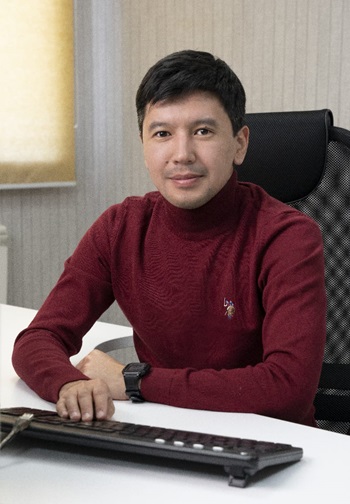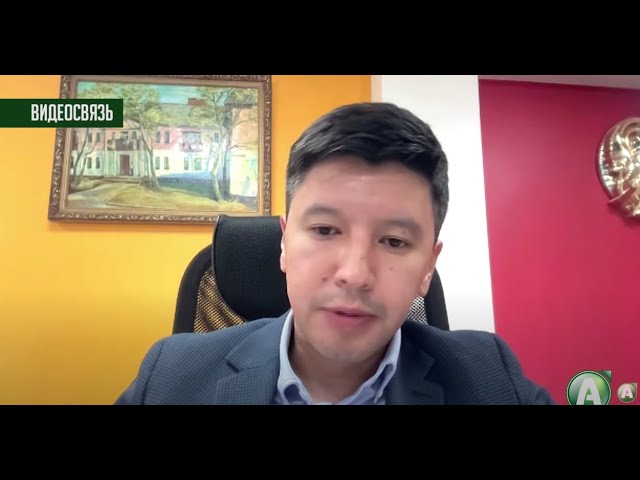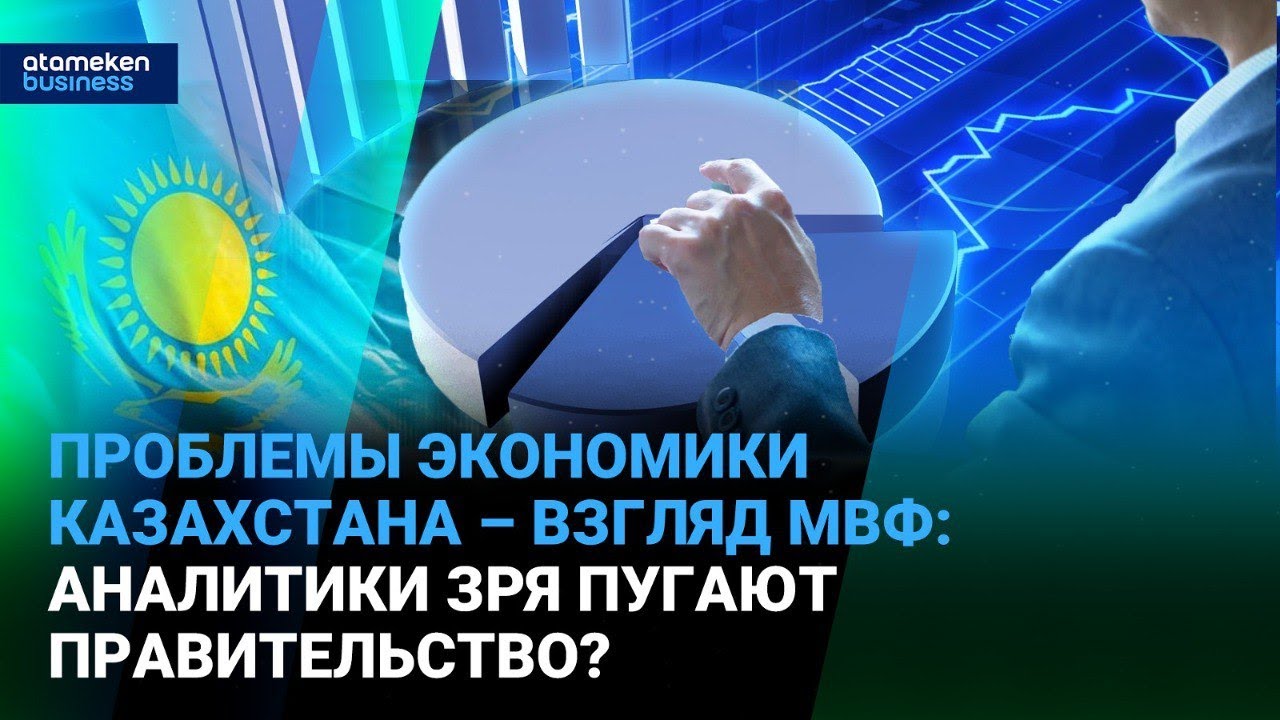The other day, the president signed a decree "On measures to liberalize the economy." About which norms are the most important and what are the risks of non-compliance with the decree, in an interview with inbusiness.Askar Kysykov, Director of the Talap Center for Applied Research, told kz.
– Askar Baurzhanovich, what is the significance of the adoption of this decree in the current situation in Kazakhstan?

– The decree on economic liberalization has been awaited for a long time. The President instructed to develop this document back in February. During this time, it underwent a long and thorough study, including expert discussions. As a result, a balanced version was adopted.
The key point is to define the basic principles of liberalization, which demonstrates a systematic approach to reforms. The decree outlines the inviolability of private property, freedom of entrepreneurial activity and freedom of competition – the fundamental principles of a market economy.
In other words, the decree underlines Kazakhstan's commitment to a market economy and confirms the implementation of consistent market reforms.
This is especially important in the current conditions, when there is some erosion of the investment climate associated with asset recovery measures, quasi-public sector redundancy, regulation and other factors. The decree returns to the basics of our economy – market relations and confirms that the market is the foundation of the future economic development of Kazakhstan.
– Which areas of liberalization do you consider the most important?
– One of the pressing issues concerning both the population and business is tariffs. The existing tariffs are not market-based and are largely directly or indirectly subsidized by the State. According to Samruk-Kazyna estimates, the fund's direct and indirect subsidies amount to about 1.2 trillion tenge. In fact, you and I are underpaying for some goods and services, such as fuel, public transport, mail, utilities, and so on, which is why the infrastructure is in a depressing state with high wear and tear. The decree assumes a smooth transition to market tariffs and the rejection of cross-subsidization of the economy for 4-5 years. The transition to market tariffs will be carried out in stages, which will avoid sharp price spikes. At the same time, it is important that, in parallel with this decree, measures of social support for the population, including targeted social assistance, be reviewed. This is necessary so that those categories of the population who will feel the brunt of the tariff increase receive the necessary assistance from the state.
– And if we talk about a decrease in state participation in the economy?
– For many years, much has been said about denationalization, but now a clear algorithm for its implementation has been defined. In fact, we are entering a new wave of privatization.
A National Privatization Office will be created, which will involve independent experts. This is an important step, as now the privatization is carried out by the government without external expertise.
It is planned to analyze and audit all state-owned enterprises and assets in order to select those that will be withdrawn for privatization based on certain criteria. Mass privatization will be completed by 2029.
It should be understood that privatization is not carried out for the sake of privatization itself. The goal is to conduct a real analysis of state and quasi–state enterprises in order to increase their efficiency.
– Does privatization solve the problem of the effectiveness of quasi-state companies?
– Privatization by itself does not solve the problem of management efficiency. This is especially true for IPOs, when a small share of shares (10-15%) is brought to the market. However, this does not improve the quality of management, because the board of directors consists mainly of officials.
In fact, Samruk-Kazyna and large national companies are managed by civil servants who do not have management experience in private business.
According to the decree, the criteria for the selection of directors to the Board of Directors will be revised and their composition will be updated. That is, as part of this reform, professional independent directors will be involved, and their share has been expanded.
When a company is run by the government, such as Samruk-Kazyna, there is a conflict of interest in making management decisions. The members of the Board of Directors from the Government pursue the goals that the government implements. Therefore, state-owned companies perform many non-market social tasks to the detriment of economic interests.
– Foreign directors have been present on the board of directors of Samruk-Kazyna Holding and its “daughters” for decades, but their work has not always been effective. There were complaints about the payment of remuneration and low work efficiency.
– The selection of competent directors depends on the selection criteria. There are enough specialists with management experience in Kazakhstan who can be involved in the board of directors.
To achieve a balance, you can also attract foreign directors who have experience working in international companies, who have a lot to learn from. Because it can be difficult to find such a director inside the country.
– What measures do you think included in the decree will be most effective to increase investment attractiveness?
– In this aspect, we can highlight the digitalization of the interaction between the state and business. It is planned to create a digital ecosystem, which has been talked about for a long time. There were attempts by the National Chamber of Entrepreneurs “Atameken” to create a “Government for business”. However, this project has not been launched yet. The President again instructed to implement this project with an emphasis on digitalization. This applies to measures of state support, provision of public services and fulfillment of business counter obligations.
As part of the improvement of the business climate, attention is paid to the protection of the rights of entrepreneurs. It is supposed to decriminalize criminal offenses in the field of economic activity. Businessmen who have committed economic crimes are often subjected to harsh detentions and are under arrest in a pre-trial detention center. Although the crime is economic. It cannot be compared with socially dangerous acts or crimes against the person. For economic crimes, entrepreneurs should receive economic penalties in the form of fines and damages. It makes no sense to deprive a person of his freedom.
In international practice, collateral is widely used, which allows a person to stay at home, or electronic bracelets. Entrepreneurs should not be locked up in a pre-trial detention center, especially when their guilt has not yet been proven during the investigation or trial. This is the wrong approach, and the decree in this direction takes the right step by proposing the decriminalization of economic crimes.
– We have quite good programs, including “100 steps” and others, which describe competent measures. However, the problem lies in the execution of these programs. Do you think the decree contains mechanisms for control and demand in general?
– There is a risk that this decree will not be fully implemented, as it is designed for 5 years. Usually, the government and government agencies do not have sufficient “breathing room” to implement programs and projects for such a long time. Often, after a year and a half of implementation, programs are left to take their course, and new ones are invented instead.
In this context, the risk of non-execution of the decree remains. The control over its implementation remains with the presidential administration. When announcing the new economic model, the President stressed that the government has the authority to implement it. The implementation of the upcoming changes will largely depend on the organization of work in the government. I hope that the privatization will be implemented well, as a national office will be created with the participation of external experts.
As for other points, unfortunately, in the past we had many good initiatives, promises and programs, but their implementation was lame. The key to success lies in the personal involvement and responsibility of each minister. In their understanding of the importance of these reforms.
Author: Майра Медеубаева
Source: https://inbusiness.kz/ru/news/svobodu-ekonomike-hvatit-li-u-gosorganov-dyhalki-dlya-reform



